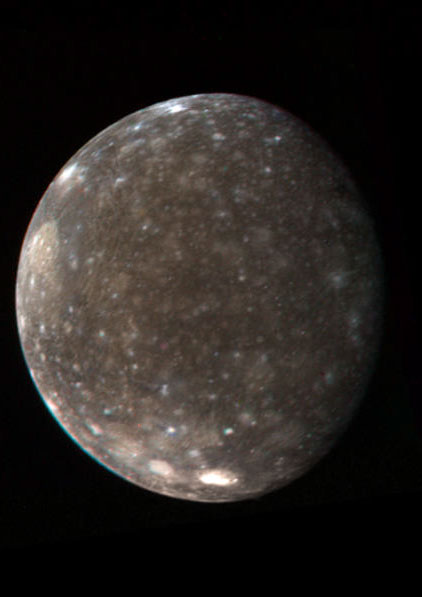
|
Explanation: Why does Jupiter's moon Callisto alter the magnetic field of Jupiter in its vicinity? Callisto itself does not have a strong magnetic field. One possible answer is that Callisto harbors sub-surface oceans of electrically conducting salt-water. This hypothesis was bolstered recently by a new analysis of how Callisto creates and dissipates heat. Callisto is thought to create heat by the radioactive decay of internal rock -- a process that keeps the Earth's mantle molten. Callisto may not be able to dissipate this heat very efficiently, however, as it has thick layers of ice and rock on its surface. Perhaps this heat is enough to keep sub-surface water from freezing into ice. With this hypothesis, Callisto joins two other of Jupiter's moons, Europa and Ganymede, in candidates for sub-surface oceans. Callisto's oceans, however, might prove too hostile to support Earth-like life.
|
January February March April May June July August September October November December |
| |||||||||||||||||||||||||||||||||||||||||||||||||||||||
NASA Web Site Statements, Warnings, and Disclaimers
NASA Official: Jay Norris. Specific rights apply.
A service of: LHEA at NASA / GSFC
& Michigan Tech. U.
Based on Astronomy Picture
Of the Day
Publications with keywords: Jupiter - Callisto - life
Publications with words: Jupiter - Callisto - life
See also:
